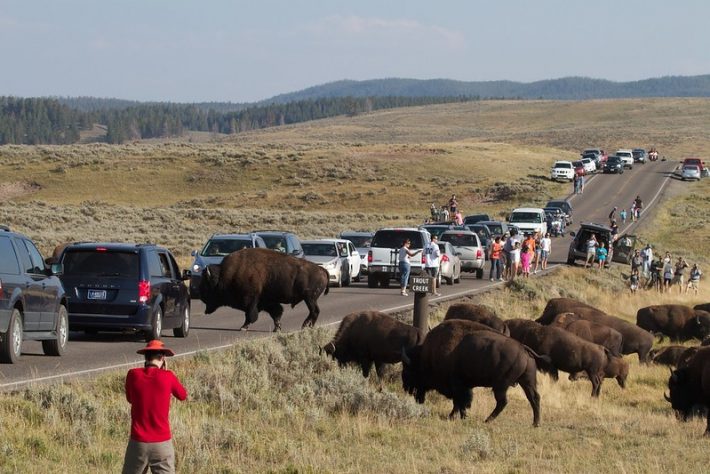Carnegie Museum of Natural History press release.
A new study published in People and Nature points the way for reckoning with Indigenous sovereignty and US public lands through place names in national parks.

US Secretary of the Interior Deb Haaland recently initiated a task force to address derogatory place names on federal lands, including names using "squaw". But is everyone on board? Why are place names important? According to a study released today in People and Nature, addressing place names could be a starting point for reckoning with US history of dispossession of Indigenous nations from their lands.
The study shows that derogatory place names are only the tip of the iceberg, violence in place names can take many forms. The study quantifies the scale of the problem in US national parks and what changing place names means in this moment.
Many consider national parks the United States' "best idea" but don't realize how park place names can help cover up their violent histories. The research released today reveals a striking trend of place names commemorating violence and colonialism while erasing Indigenous cultures. Among the 16 studied national parks and their over 2,200 place names the study identified:
- 52 places named for settlers who committed acts of violence against groups, often against Indigenous peoples. Mt. Doane in Yellowstone and Harney River in Everglades, both homelands of Indigenous nations, commemorate individuals who led massacres of Indigenous peoples, including women and children.
- 107 natural features retaining traditional Indigenous place names, yet 205 settler place names replacing recorded traditional Indigenous place names
- 10 racial slurs
- 214 examples of appropriation from Indigenous languages
Places like Clear Creek or Sharp Peak might seem harmless or neutral, but at the minimum they are erasing and replacing traditional Indigenous place names
Native American groups like the Blackfeet and Lakota have called for changing place names at national parks and monuments for over a century, and the research team places their work in service to local and national name-changing campaigns.
"The study illustrates that place names in the parks contribute to the erasure of Indigenous sovereignty at a system-wide scale and require a system-wide response, which supports Secretary Haaland's task force and future task forces to address more than just derogatory names," said Dr. Bonnie McGill who led the study and is a David H. Smith Conservation Research Fellow at the Carnegie Museum of Natural History.
When asked what this study means in regards to PC culture, McGill clarified, "Part of the motivation for this work was to help white settlers and scientists like me better understand some of the changes involved in reckoning with our history of settler colonialism in the US, that things like place names are more than meets the eye, and to set settler history in conversation with Indigenous histories, rather than just choosing one history or the other."
More subtle-sounding place names can also be problematic. Dr. Natchee Barnd, a professor of Ethnic Studies at Oregon State University and a co-author of the study pointed out that, "Places like Clear Creek or Sharp Peak might seem harmless or neutral, but at the minimum they are erasing and replacing traditional Indigenous place names, and thus diminishing and battering those knowledges and their communities."
You can read the full article for free here:
https://besjournals.onlinelibrary.wiley.com/doi/full/10.1002/pan3.10302






